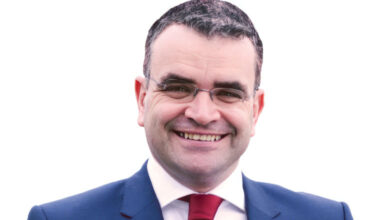Sustainable development education and ESG professional training

Patrick Paul Walsh, Vice President of Education and Director of the SDG Academy, UN Sustainable Development Solutions Network (SDSN), tells eolas Magazine about the imperative of sustainable development education in ESG professional training.
Walsh articulated the case for the integration of sustainable development education into professional training frameworks, particularly as they pertain to the evolving demands of environmental, social, and governance (ESG) compliance. His remarks underscore the need to equip the current and future workforce with the requisite knowledge and skills to navigate global sustainability challenges, which are increasingly shaping regulatory and corporate landscapes.
Walsh emphasises that the transition towards sustainable economic models cannot be achieved without a corresponding shift in workforce education. “Irrespective of prior academic or professional qualifications,” he observes, adding: “There exists a pervasive gap in understanding how economic activities intersect with ecological and social systems.” This gap, he argues, is particularly evident in the corporate sector, where ESG reporting and compliance have introduced new layers of complexity.
The SDG Academy, under Walsh’s leadership, has sought to address this gap through the provision of open-access educational resources. “While the availability of free online courses represents a significant step forward, the real challenge lies in embedding these materials into formal professional development pathways, ensuring that they are not merely consumed but actively applied within organisational contexts,” he says.
Workforce development
Since its inception, the SDG Academy has disseminated knowledge through a suite of online courses, many of which have been widely adopted by academic institutions, governmental bodies, and multinational corporations. Walsh highlights the scale of this reach: “To date, our courses have been certified by over one million learners, a figure that, while substantial, does not fully capture the broader, informal utilisation of these resources across sectors.”
Of particular relevance to the workforce of the future is the Academy’s focus on interdisciplinary learning. Courses such as the SDG Academy’s Planetary Boundaries and The Age of Sustainable Development are designed to provide professionals with a holistic understanding of sustainability, transcending traditional disciplinary silos.
“The feedback from corporate learners,” Walsh remarks, “indicates that this broader perspective is invaluable when navigating ESG frameworks, as it enables professionals to contextualise their roles within larger systemic challenges.”
Mission 4.7
Central to Walsh’s argument is the principle articulated in Sustainable Development Goal Target 4.7, which advocates for sustainable development education as a lifelong endeavour. “The prevailing assumption that sustainability education should be confined to primary or secondary schooling is fundamentally misplaced,” he asserts. “Given the urgency of the climate crisis and the rapid evolution of regulatory requirements, it is incumbent upon us to ensure that continuous learning opportunities are accessible to all segments of the workforce.”
This perspective has been reinforced by recent international policy developments, including the midterm review of the SDGs, co-facilitated by Ireland and Qatar, which explicitly endorsed lifelong learning as a cornerstone of sustainable development. “The recognition of this continuum at the highest levels of global governance underscores the necessity of aligning professional training with the broader objectives of the 2030 agenda,” Walsh notes.
Challenges and opportunities for SMEs
Walsh asserts that there is a disproportionate burden that ESG compliance places on small and medium-sized enterprises (SMEs), which often lack the resources to navigate these requirements independently. “The prevailing model is one in which larger corporations impose ESG standards upon their supply chains, effectively externalising the costs of compliance onto SMEs,” he observes. This dynamic, he argues, is unsustainable and necessitates a more equitable approach to workforce upskilling.
To this end, Walsh advocates for a coordinated industrial policy framework, wherein regulators, educational institutions, and industry stakeholders collaborate to standardise and subsidise ESG training. “The historical precedent for such an approach exists,” he notes, referencing Ireland’s experience with structural economic reforms in the late 20th century. “When the State assumes responsibility for workforce development, the transition towards sustainable practices becomes significantly more manageable for smaller enterprises.”
Insurance and financial services
Walsh states that that the insurance sector is a catalyst for ESG integration. “The increasing frequency of climate-related disruptions has rendered many assets uninsurable,” he says. “This presents both a risk and an opportunity for the financial services industry to reorient itself towards sustainability.”
Walsh highlights ongoing collaborations with reinsurance firms and academic institutions to develop training programmes that frame ESG through the lens of actuarial science. “By quantifying sustainability risks in financial terms,” he explains, “we can create a more robust incentive structure for ESG compliance, one that resonates with both corporate decision-makers and policymakers.”
Concluding, Walsh reiterates the necessity of systemic reform in workforce education. “The challenges we face are not merely technical but structural,” he says. “Without a concerted effort to democratise access to sustainability education, the transition to a sustainable economy will remain uneven and incomplete.”





